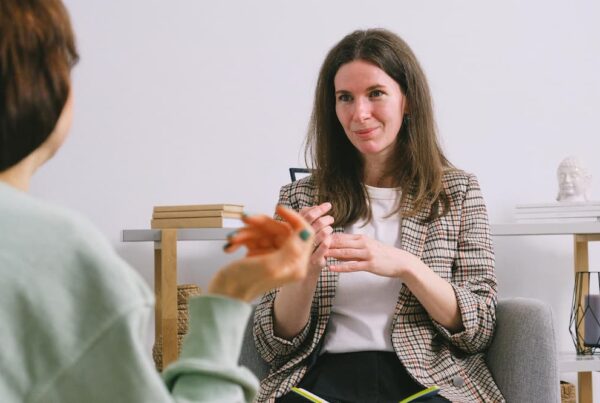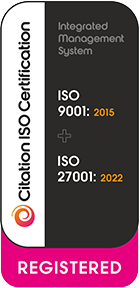Seeking addiction treatment can be daunting – however, it’s a courageous step towards reclaiming your life and overcoming substance abuse issues.
Whether you’re battling with alcohol, prescription drugs, cocaine, or any other substance, the journey to recovery often begins with rehabilitation.
Traditional rehab centres offer invaluable support and resources, but more and more people are opting for rehab at home instead of at a rehab facility. At-home rehab offers higher levels of flexibility and convenience, making it an accessible option for all.
But what exactly happens in rehab? What should you expect from residential rehab, and how is rehab at home different? That’s what we’ll be exploring today. Read on to learn all about the rehab process, and what happens in rehab at home.
What to Expect From Rehab
Rehab typically involves a multifaceted approach that addresses the physical, emotional and psychological aspects of addiction. One size does not fit all when it comes to rehab, which is why a tailored program always works best. Here is what you can expect from the rehab process:
Assessment and Evaluation
The first step is to complete an assessment to evaluate your physical health, mental state, and substance use history. This information can help your treatment provider to tailor a personalised treatment plan that meets your needs and recovery goals.
Detoxification
Detoxification, commonly referred to as detox, is a key first step in addiction treatment for substance use disorder. In rehab, detox is a process where the body rids itself of harmful substances, such as drugs or alcohol. Think of it as hitting the reset button for your body.
During detox, you will be monitored by medical professionals who provide support and care to manage withdrawal symptoms safely. A medicated detox is when you are given detox medication to help manage withdrawal symptoms and streamline the process.
These symptoms can vary depending on the substance abused and the individual’s health condition. Common withdrawal symptoms include nausea, sweating, anxiety, and insomnia.
The goal of detox in rehab is to help you safely and comfortably overcome the physical dependence on drugs or alcohol, giving your body a chance to start fresh.
Detox typically lasts for a few days to a week, although the duration can vary based on factors like the type of substance you’re addicted to and your overall health.
Once you have completed the detoxification stage, you will be better equipped for the next stage of the rehab process – therapy and counselling.
Therapy and Counseling
A typical day in rehab will involve therapy sessions. These sessions – both individual sessions and group sessions – provide a safe space for you to overcome your addiction.
During rehab, you will explore the underlying factors contributing to your addiction, learn effective coping strategies, and develop healthy behaviours. Therapy can boost your mental health and confidence, and empower you to become the best version of yourself.
There are a range of different therapies that are effective in treating addiction, such as:
- Cognitive behavioural therapy (CBT)
- Dialectical behavioural therapy (DBT)
- One-to-one counselling
- Group therapy
- Family therapy
- Holistic therapies
Your rehab provider will determine the best approach for you, and provide you with the support you need to overcome your addiction for good.
Family Involvement
It can be helpful to have family members join in therapy sessions. Family therapy sessions can help your loved ones understand addiction and address any dynamics that could potentially impact the recovery process. Family support can be extremely helpful during recovery and can help you to achieve long-term sobriety.
Support Groups
Many people find support groups such as Alcoholics Anonymous (AA) or Narcotics Anonymous (NA) helpful alongside or following therapy.
These groups can provide a sense of community, and connect you with others who want to make a positive change. You can expect peer support, accountability, and guidance from those who have walked a similar path.
Aftercare Planning
The rehab process doesn’t end when you finish your therapy treatment. A comprehensive rehab program includes aftercare planning to support you as you transition back to your daily life. This may involve ongoing therapy, participation in support groups, and connections to community resources for continued support.
How is Rehab From Home Different?
Inpatient rehab clinics aren’t for everyone – rehab from home can be just as effective. Rehabilitation from the comfort of your own home offers a unique approach to addiction treatment.
It can eliminate barriers that can occur with inpatient treatment programmes. Here are some key differences between residential rehab and home-based rehab.
Flexibility
Home-based rehab provides a much higher level of flexibility in scheduling treatment sessions, allowing you to integrate therapy and counselling into your daily routine. This can be ideal if you work a 9-5 job, or you have other commitments such as childcare.
At Rehubs, we offer evening rehab sessions to make rehab accessible to clients who work during the day.
Privacy and Comfort
One of the best things about rehab from home is that it provides privacy and comfort. You can complete rehab in comfortable and familiar surroundings, putting you at ease during your treatment. It can also reduce feelings of stigma associated with addiction and treatment.
Access to Resources
Just like you can access resources during inpatient rehab, you can access helpful resources when you complete rehab at home. Online platforms like Rehubs offer a wealth of resources, including virtual therapy sessions, educational materials, and support networks, accessible from anywhere with an internet connection.
What to Expect From Online Rehab
As technology continues to evolve, so does the landscape of addiction treatment. Online rehab platforms offer a range of services tailored to meet your individual needs when overcoming substance abuse and addiction.
Online rehab platforms provide access to licensed therapists and counsellors who conduct therapy sessions via video conferencing. This allows you to receive professional support from a safe, comfortable and familiar environment.
At Rehubs, we offer educational resources to help you understand addiction, learn coping skills, and information about treatment options.
Online rehab platforms are accessible anytime, anywhere, providing round-the-clock support when you’re in need. Whether it’s a late-night craving or a moment of crisis, help is just a click away. Our helpful mobile app can help you track your recovery and keep you on the right track.
Explore The Rehubs Online Rehab Platform Today
If you or a loved one is struggling with addiction, Rehubs offers a compassionate and comprehensive approach to online rehab. Whether you have a cocaine addiction, ketamine addiction, cannabis addiction, gambling addiction or alcohol addiction, we’re here to help.
Our convenient platform combines evidence-based treatment with the convenience of virtual care, allowing you to begin your recovery journey from the comfort of your home. With a focus on personalised care, privacy, and support, we are here to guide you every step of the way.
Take the first step towards a healthier, happier life by exploring the Rehubs online rehab platform today.







